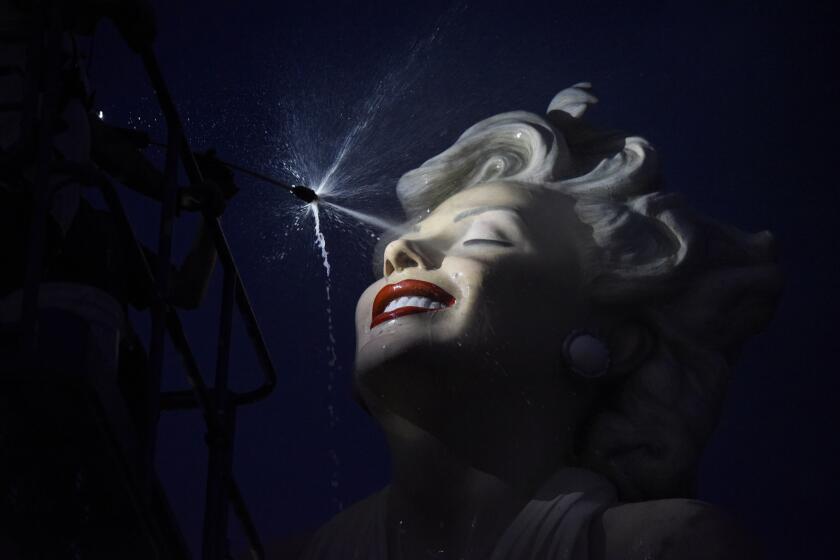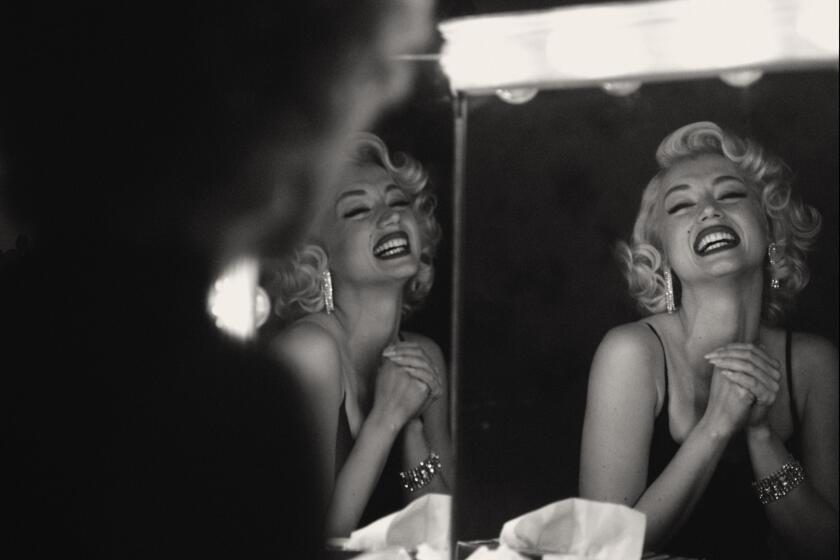Why Marilyn Monroe’s sudden death still evokes mystery, questions 60 years later

It’s been 60 years since Marilyn Monroe was discovered on Aug. 5, 1962, in her bed in her Brentwood home, her hand draped lifelessly over the phone.
The shocking death of one of Hollywood’s biggest stars generated decades of speculation as to whether her overdose was a suicide, an accident or something more sinister.
The conspiracies grew to such a point that the Los Angeles County district attorney‘s office reopened an investigation into the actress’ death in 1982 — 20 years after she died.
Aug. 5 will mark 60 years since the death of Marilyn Monroe. A photographic look at her legacy.
But conspiracists wondering why the deputy medical examiner who performed the autopsy found no barbiturate residue in the 36-year-old movie star’s stomach if she ingested the drugs orally were disappointed by the answers.
“D.A. Finds No Evidence of Marilyn Monroe Murder,” a Los Angeles Times headline blared in late 1982, just months after the D.A.’s probe got underway.
The prosecutor’s office found that Monroe’s death from “acute barbiturate poisoning” could have been an overdose or accidental, but that the barbiturates had had time to disperse into her blood and liver, explaining why the doctor found no residue in her stomach.
‘There are no rules when it comes to how an artist can honor her legacy,’ a rep for the Marilyn Monroe estate says of Ana de Armas’ performance.
The closed three-month probe did not satisfy those who believed something nefarious occurred.
Some still believed she was killed over her connections to President John F. Kennedy and then-U.S. Atty. Gen. Robert F. Kennedy.
In 1985, a woman claimed that her ex-husband, actor Peter Lawford, went to Monroe’s house the night she died and destroyed a note that the distraught actress left before she died.
Though it’s not clear if a note was actually taken, the deputy district attorney who conducted the 1982 reinvestigation, Ronald H. Carroll, said that still might not mean the actress was killed.
“If she was despondent and wrote a note saying, ‘Bobby Kennedy drove me to suicide,’ it is not clear that the taking of that note would have been a crime,” he said.
Conservators and fashion historians were baffled when Kim Kardashian wore Marilyn Monroe’s ‘Happy Birthday, Mr. President’ gown to the 2022 Met Gala.
Monroe’s FBI file, unearthed 50 years after she died, showed that the feds knew about theories alleging the actress was murdered but do not show that the bureau looked into the claims.
The FBI file also revealed that the bureau was interested in Monroe’s political affiliations and refers to her as “positively and concisely leftist.”
Reading list
Here is more Times coverage about Monroe’s death and the decades of questions it sparked.
This article was originally on a blog post platform and may be missing photos, graphics or links.
Former prosecutor says he has heard tapes that Marilyn Monroe made in the days before she died that prove the actress was anything but suicidal.
I don’t quite agree with writer Susan Baskin that Marilyn Monroe wanted her life to end (“Marilyn & Me,” Aug. 2).
Aug. 5, 1962: Marilyn Monroe was found dead in the bedroom of her Brentwood home.
Eunice Murray would say later that she was not sure what prompted her to awaken that night, step from her bedroom and notice a telephone cord leading under Marilyn Monroe’s bedroom door.
Newly released tapes of Monroe’s death-scene witnesses to air on CBS’ ‘48 Hours Mystery.’
Twenty-three years after actress Marilyn Monroe died of a drug overdose in her Brentwood home, the Los Angeles Police Department on Monday released what it said was its confidential file on the case.
John Miner, a former L.A. County prosecutor, made headlines in recent years when he shared what he said were the contents of tapes Marilyn Monroe made with her psychiatrist. Monroe’s death was ruled a ‘probable suicide,’ but Miner strongly believed she was killed.
More to Read
Sign up for Essential California
The most important California stories and recommendations in your inbox every morning.
You may occasionally receive promotional content from the Los Angeles Times.













